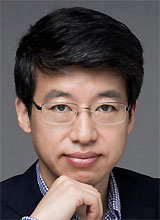Economy shaken by the virus
Economy shaken by the virus
Posted February. 14, 2020 07:45,
Updated February. 14, 2020 07:45

We often overlook an obvious fact as we were born in a social system where personal freedom is guaranteed by law. The act of meeting strangers and doing something is itself a main driver of the economy.
The importance of interaction is highlighted because of the novel coronavirus crisis. Western economists take an example of the period before China’s market opening when communal living was the norm to explain this. The Chinese staff at the meteorological administration I met in early 1990s lived in the same apartment, ate at the same restaurant and worked at the same office. Economists say that today’s mobile phones, cars and cosmetic products would not mean much to those who lived in such environments for a long time. They rarely have an occasion to use a mobile phone or put makeups on because everyone they know lives within the same fence, wearing the same uniform.
It is hard to related to the reality of Chinese people, but the photos of streets in downtown Wuhan are frightening. South Koreans avoid meeting others as well, and places that used to be crowded such as department stores and concert halls are not so crowded any more. Restaurants, cars and mobile phones become useful when people meet and interact with others.
If the virus was not harmful to humans, our daily lives would have been the same. But everything changed when someone died from it. People start to go out less because those with a weak immune system may be affected more severely. Fortunately, patients confirmed with the virus are recovering. Infections are treatable as long as the number of patients does not skyrocket above the capacity of hospitals. It is too early to say we are safe, but the anxiety over the virus may go down a notch. The virus should not strain the economy for ordinary people.
The crisis poses a question to Korea which actively exchanges with China. The virus stopped the belts in Korea’s automobile factories. Auto part suppliers are concentrated in China even though they are not essential parts. That is why factories stopped operating when there was a problem in logistics and production in China. Japan which is often hit by natural disasters such as earthquakes prioritizes stable operation over immediate economic gains.
We need to think about the effect of the virus on sharing economy which is newly emerging. Bikes and kickboards for the public are on the streets gathering cobwebs since the virus emerged. More people started to drive rather than hopping on public transportation for fear that they would carry the virus home. Preparations for infections diseases seem essential to lay a stable foundation for sharing economy.
Economic institutions overseas are bringing down their projections for Korea’s economic growth rate due to delays in production and shrinking domestic consumption. If the virus actually drives down the economic growth rate, the government needs to prepare pump-priming policies. Monetary policies that adjust interest rates are usually used. Low interest rates often drive up house prices. But they are still projections. Each economic entity including the government, businesses and individuals must find a balance to prevent economic side effects. President Moon Jae-in tries to relieve public anxiety because of this.
I hope the government could learn a lesson that the virus is not the only factor that restricts activities. Policies should focus on encouraging people to meet and engage in economic activities.
jameshuh@donga.com
Headline News
- Joint investigation headquarters asks Yoon to appear at the investigation office
- KDIC colonel: Cable ties and hoods to control NEC staff were prepared
- Results of real estate development diverged by accessibility to Gangnam
- New budget proposal reflecting Trump’s demand rejected
- Son Heung-min scores winning corner kick







